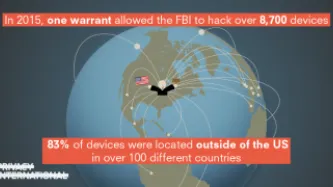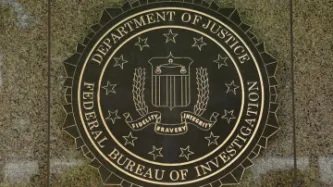Advanced Search
Content Type: Press release
On 18th August 2025, Privacy International has issued a formal complaint to the UK Information Commissioner (ICO) about the Home Office’s (HO) use of two automated tools in immigration enforcement operations, which PI argues do not adequately comply with the UK General Data Protection Regulation (GDPR) and Data Protection Act 2018 (DPA 2018). The Identify and Prioritise Immigration Cases (IPIC) tool and the Electronic Monitoring Review Tool (EMRT) appear to be used to make life-altering…
Content Type: Long Read
On the basis of a year of legal research by PI as well as documents obtained by other civil society organisations, and evidence provided by legal representatives fighting these automated systems on behalf of their clients, on the 18th August 2025, we issued a formal complaint to the UK Information Commissioner (ICO) regarding the UK Home Office’s use of two ‘automated recommendation-making tools’ (ARMTs), the Identify and Prioritise Immigration Cases tool (IPIC) and the Electronic Monitoring…
Content Type: News & Analysis
The notorious Clearview AI first rose to prominence in January 2020, following a New York Times report. Put simply, Clearview AI is a facial recognition company that uses an “automated image scraper”, a tool that searches the web and collects any images that it detects as containing human faces. All these faces are then run through its proprietary facial recognition software, to build a gigantic biometrics database.
What this means is that without your knowledge, your face could be stored…
Content Type: News & Analysis
What if we told you that every photo of you, your family, and your friends posted on your social media or even your blog could be copied and saved indefinitely in a database with billions of images of other people, by a company you've never heard of? And what if we told you that this mass surveillance database was pitched to law enforcement and private companies across the world?
This is more or less the business model and aspiration of Clearview AI, a company that only received worldwide…
Content Type: Advocacy
The Office of the Privacy Commissioner of Canada has developed draft privacy guidance for police agencies' use of FRT, with a view to ensuring any use of FRT "complies with the law, minimizes privacy risks, and respects privacy rights". The Commissioner is undergoing consultation in relation to this guidance.
Privacy International and the Canadian Civil Liberties Association ("CCLA") welcome the Commissioner's efforts to strengthen the framework around police use of facial recognition, and the…
Content Type: Long Read
Introduction
A growing number of governments around the world are embracing hacking to facilitate their surveillance activities. Yet hacking presents unique and grave threats to our privacy and security. It is far more intrusive than any other surveillance technique, capable of accessing information sufficient to build a detailed profile of a person, as well as altering or deleting that information. At the same time, hacking not only undermines the security of targeted systems, but also has…
Content Type: Long Read
This piece was orignally published in Slate in February 2017
In 2015, the FBI obtained a warrant to hack the devices of every visitor to a child pornography website. On the basis of this single warrant, the FBI ultimately hacked more than 8,700 computers, resulting in a wave of federal prosecutions. The vast majority of these devices—over 83 percent—were located outside the United States, in more than 100 different countries. Now, we are in the midst of the first cases…
Content Type: Long Read
This piece originally appeared here.
On both sides of the Atlantic, we are witnessing the dramatic expansion of government hacking powers. In the United States, a proposed amendment to Rule 41 of the Federal Rules of Criminal Procedure would permit the government to obtain a warrant, in certain circumstances, to hack unspecified numbers of electronic devices anywhere in the world. Meanwhile, across the pond, the British Parliament is currently debating the Investigatory…







